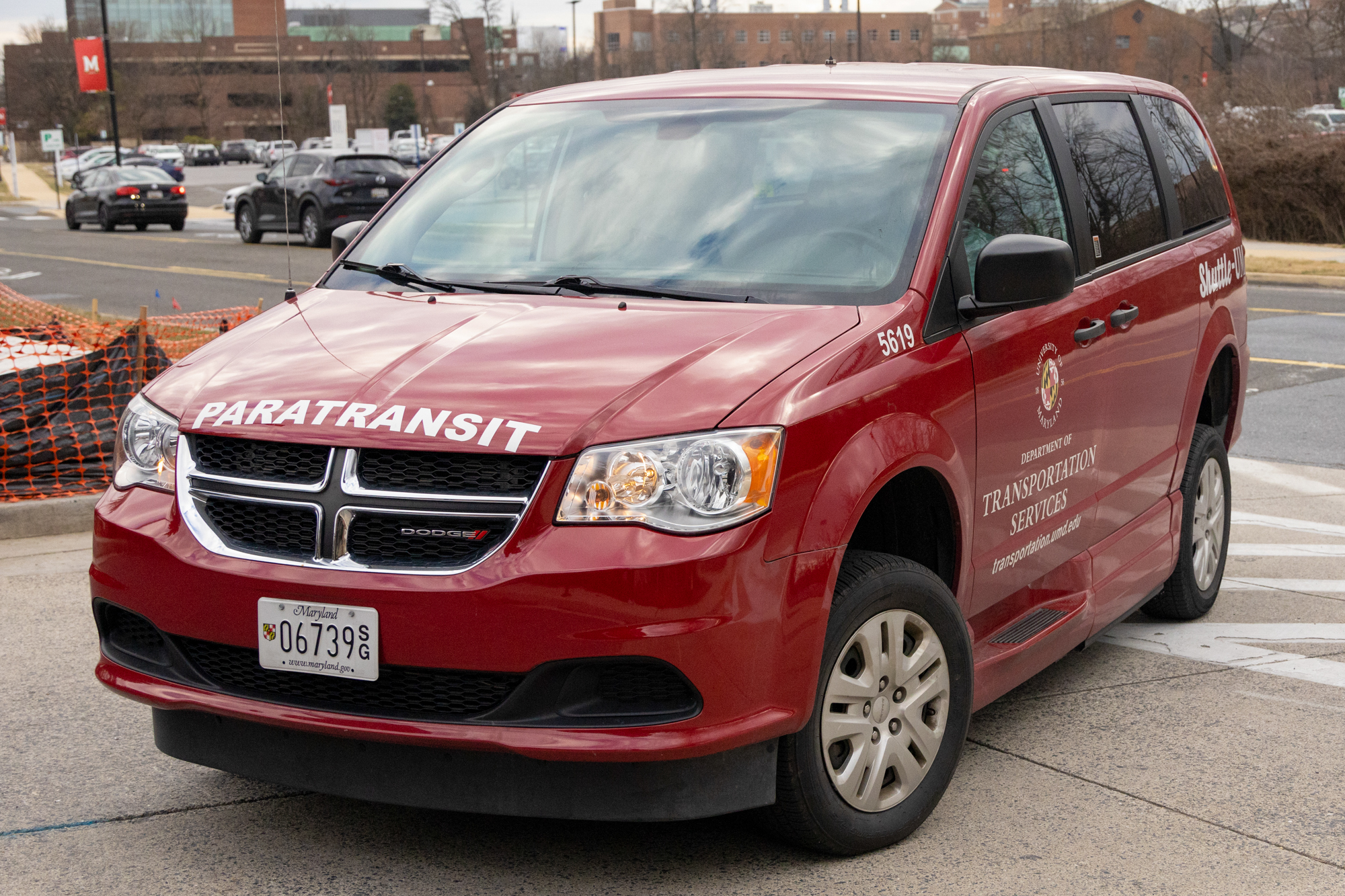Views expressed in opinion columns are the author’s own.\
The University of Maryland has the ability to improve paratransit, yet some of its policies for this essential service disavow students in need of support.
This university is vastly progressive, inclusive and forward-thinking. It would be improper not to commend it on its inclusivity efforts. After all, the university paratransit system is free and offers vital services for many students with disabilities or temporary injuries. Additionally, campus efforts, such as ‘Will You Stand Up For Me?’, further support students with disabilities and raise much needed awareness. Projects, such as a disability cultural center, are in the works, and a disability studies minor has proven greatly successful in increasing awareness.
Unfortunately, this university struggles with one of the most prominent resources for students with disabilities. Many have found its paratransit service unreliable.
Students with disabilities already face a slew of challenges in college, often feeling excluded, unaccommodated and like an afterthought. The process of dealing with paratransit can get so exhausting to some students who need mobility assistance, they may even choose to forego the service altogether. Having a reliable paratransit service should be the standard to support these students and address their needs appropriately. To do this, the current paratransit system needs some major changes.
As it stands, current university paratransit policy states that passengers who miss one ride will have their remaining rides canceled for that day. If they are more than five minutes late but still show up, they are left with no ride as paratransit considers this a no-show.
I understand if paratransit operates on a tight schedule or if this policy opens up spaces for others who may want to use the service relatively last minute. However, this seems grossly unfair to students who already had services scheduled. There’s no guarantee missing one ride means missing the others, and it places a strain on the passenger to figure out how they’ll get around for the rest of the day.
The paratransit service also books quickly. Due to the nature of this service and how quickly spots fill up, many students with disabilities are unable to get rides swiftly. This may cause them to miss out on enriching academic or social events on the campus, including events they find out about the day of.
Another policy states that after three no-show violations, a passenger will be fined $20, and another $20 for every subsequent no-show. This policy exists to deter students from not showing up to rides they book, but surely, there must be more thoughtful ways to do so.
For example, Towson University’s paratransit policy makes no mention of no-show fees toward passengers. Instead, passengers might have their service eligibility suspended, but the policy permits an appeal. While this policy might not be ideal either, the idea behind it matters. The process for dealing with students who violate policy should not be a fine, as most college students are already on a tight budget to begin with. Rather, it should involve a more considerate grace period, more communication and non-monetary warnings.
Taking some form of disciplinary action to deter students from misusing such an important service is understandable. But to incur a monetary penalty simply seems unreasonable and unnecessary, especially knowing there are other methods of consequence. Not to mention, where does this money even go, anyway?
Instead of letting students lose out on important experiences because of the inflexibility of the current campus paratransit system, more emphasis and responsibility should be placed on the organization. If these stringent policies aim to make sure there’s service for all, then paratransit needs to work to expand its availability so as to not disadvantage passengers who rely on this service to get around.
More accessibility, availability and flexibility would help to alter the no-show policy. Passengers should have more than a five minute grace period for being late and shouldn’t have to lose their rides for the rest of the day. Not only would this increase the reliability of the service, but it could potentially help students with disabilities feel more integrated and included on the campus.
It is true that this university has made many far-reaching and inclusive changes in the disability space, but more attention needs to be directed toward its lackluster paratransit services.
Vrisha Sookraj is a junior psychology major. She can be reached at vsookraj@terpmail.umd.edu.



